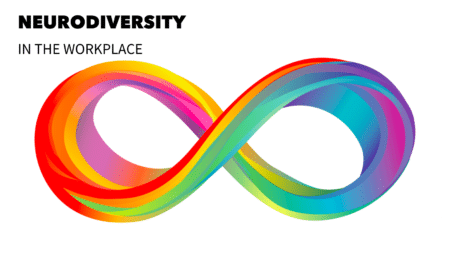
Neurodiversity in the Workplace: A Guide to Inclusion
In today’s rapidly evolving workplace landscape, conversations around diversity and inclusion have taken center stage. Among the critical components of diversity is neurodiversity, which refers to individuals with varying neurological conditions. This blog post delves into the significance of supporting neurodiversity in the workplace, explores its current status in the American job market, and provides practical strategies for non-profit, for-profit, and government entities to create inclusive environments.
What Is Neurodiversity?
Neurodiversity refers to individuals with specific neurodivergent diagnoses and general neurodivergence, including conditions like dyslexia, ADHD, and autism spectrum disorder (ASD). It is essential to recognize that neurodiversity brings unique strengths, making it a competitive advantage in the workplace.
Why Support Neurodiversity in the Workplace?
As the landscape of work transforms, embracing neurodiversity is crucial for several reasons1:
- Unleashing Untapped Potential: Neurodivergent employees bring diverse perspectives and problem-solving skills, unlocking untapped potential within organizations.
- Improving Employee Retention: Supporting neurodiversity enhances employee satisfaction and loyalty, reducing turnover rates.
- Strengthening ESG Position: A commitment to neurodiversity positively influences Environmental, Social, and Governance (ESG) scores, a critical factor for investors and stakeholders.
Neurodiversity in America & the Workplace
A recent industry survey reveals that while progress has been made in supporting neurodivergent employees, there is more work to be done:
- Awareness is Low: Only a small percentage of respondents are aware of the prevalence of neurodivergent individuals, particularly in the workplace.
- Inclusivity Matters: Both neurodivergent and neurotypical employees value inclusive workplaces.
- Room for Improvement: Many believe that organizations can do more to support neurodiversity.
Strategies to Support Neurodiversity
Non-profit, for-profit, and government entities can foster greater inclusion by:
- Increasing Job Opportunities for Neurodiverse Individuals:
- Target job opportunities tailored to workers with ADHD and autism.
- Consider implementing apprenticeships as a proven way to recruit, train, and advance neurodiverse workers.
- Implementing Inclusive Hiring Practices:
- Expand roles available to accommodate diverse talents.
- Cast a wider net during recruitment.
- Revamp the application, screening, and interview processes.
- Provide post-interview and onboarding support.
- Improving Accessibility for Neurodiverse Individuals:
- Embrace AI and technology to enhance accessibility.
- Explore innovative solutions that cater to diverse needs.
- Diversifying Communication Styles & Implementing Adaptive Work Environments:
- Recognize and adapt to different communication styles.
- Create flexible, adaptive work environments.
Conclusion
Supporting neurodiversity in the workplace is not just a matter of ethics; it’s a strategic move with tangible benefits. Non-profit, for-profit, and government entities can enhance their performance by embracing neurodiversity. By increasing job opportunities, implementing inclusive hiring practices, improving accessibility, and adapting communication styles and work environments, organizations can tap into the remarkable potential of neurodivergent individuals. In doing so, they will foster greater inclusion, increase employee retention, and strengthen their ESG positions, ultimately contributing to a more diverse and vibrant workforce of the future.
MFR Consultants
Have questions about MFR’s approach to Neurodiversity in the workplace and how it may help your organization? Get in touch with us here, or follow us

